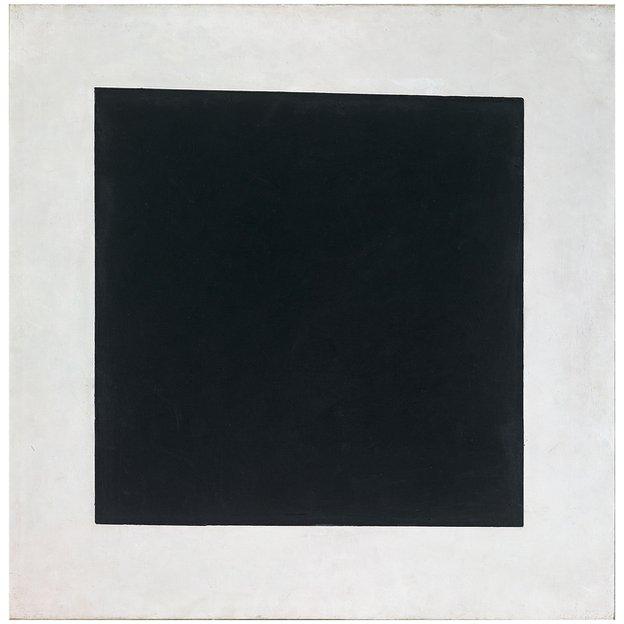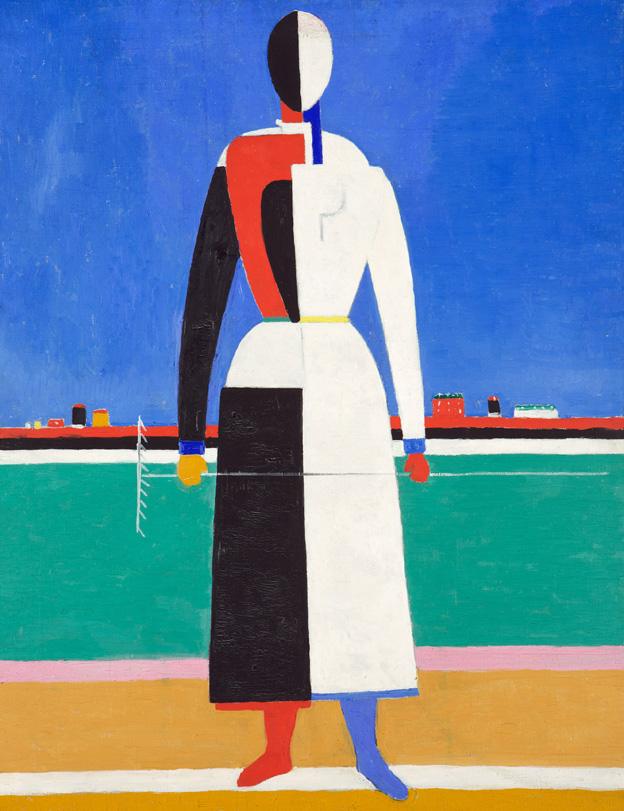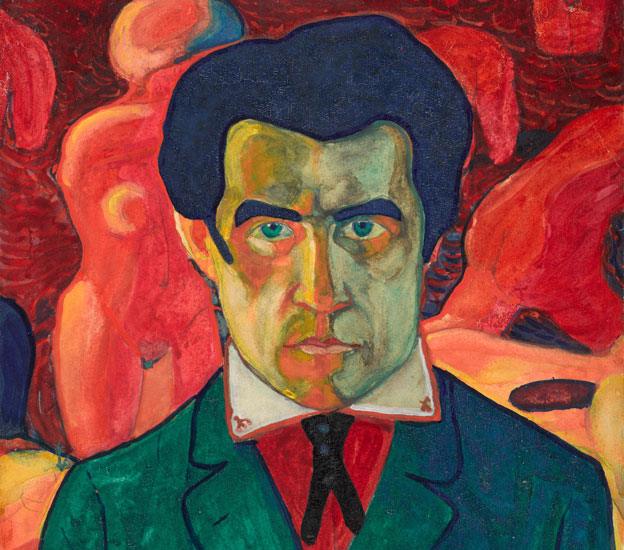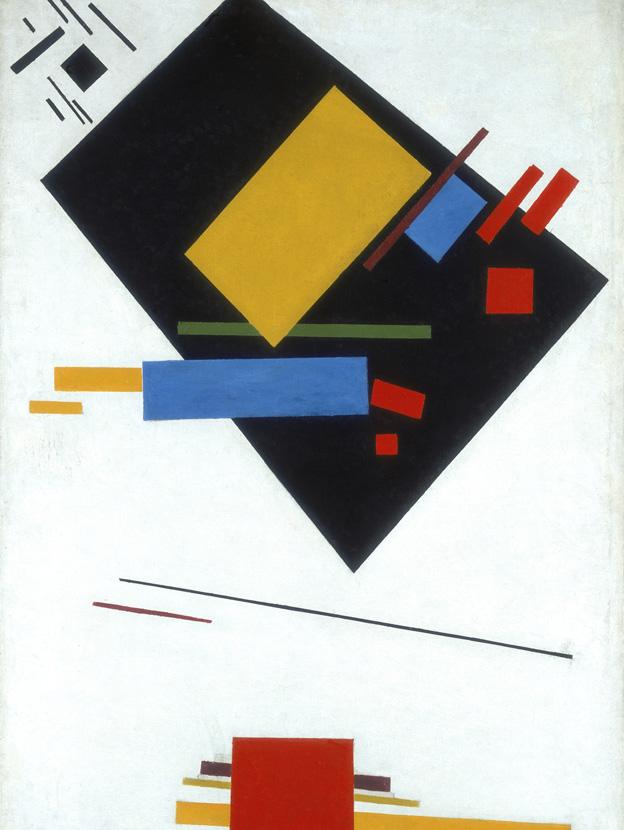Malevich: Master of the avant-garde
- Published

Malevich's Black Square was 'done unconsciously' and it took the artist a while to see it was the start of a much bigger artistic ethos
Is Kazimir Malevich's famous Black Square (1915) painting a work of art? The majority of people to whom I speak think not. They are not alone.
The artist himself didn't think so when he first created the composition in 1913 as a part of the scenery he was designing for a Futurist opera called Victory Over the Sun.
It wasn't until two years later that the mystic-loving artist decided that his black square motif, which was "done unconsciously", was now an important work. It was, he said, part of a bigger idea that was "bearing extraordinary fruit".
That bigger idea was to "free art from the dead weight of reality". Malevich called it Suprematism but its roots are to be found in Arthur Schopenhauer's 1818 text The World as Will and Representation.

The works in the exhibition are stunning and even now feel powerful and modern and important
The German philosopher argued that we are all trapped by the insatiability of our will, which makes our lives intolerably miserable.
The only escape, he said, was through art, the best form of which was music because of its abstract nature.
Malevich applied this thinking to painting. By making pictures that contained absolutely no reference to the physical world, with no hint of a tree, a shoe or a house etc, the viewer would be free to react to the work in a purely emotional way.
He was, he said, making art that was about the "supremacy of feeling".

Woman with Rake was created in the early 1930s
You can now see a comprehensive collection of Malevich's paintings in an exhibition at Tate Modern.
The show starts at the beginning of his career when he is responding to the work of Cezanne, Matisse, Monet and Picasso that he had seen in Moscow.
He then hops on the Cubist, Futurist bandwagon and gives it a Russian makeover by adding peasants to his pictures.
And then comes the moment that he and his fellow avant-garde colleagues had long been striving for: a modern art breakthrough that was made in Russia.

Malevich's self-portrait shows his early influences of Cezanne, Matisse, Monet and Picasso
This is the pivotal point of the exhibition, the moment at which Malevich's pastiche and experimentation becomes radically innovative, epoch-making art.
It is 1915 and he moves into total abstraction, while cutting off all ties with the past by saying his predecessors were "counterfeiters".
The works are stunning. Even today, nearly a century later, they feel powerful and modern and important.
It would and should be fantastically exciting but is utterly ruined by the wretched soundtrack of Victory Over the Sun blasting through the galleries.

Appreciating Malevich's Trapezium is difficult with the music being played in the exhibition hall
The opera was very irritating in 1913 and it's still very irritating now.
Malevich's Suprematist paintings have many qualities, chief among which is their composition. Unlike most paintings, these abstract masterpieces appear to emit a soundscape - they have an aural quality.
You can hear the discordant tones of the clashing geometric shapes that refuse to resolve themselves: the bold black blocks sound a deep, sombre tone, while the thin, jaggedly rectangles of blue and yellow scream out the high notes.
But you can't hear any of this because of the incomprehensible noise blaring out from the soundtrack of Victory Over the Sun. What's going on? Surely headphones could be supplied to those who want to listen and watch the film showing a recreation of the opera?
I mentioned my irritation to one of the Tate's staff who confessed the music was also driving the gallery assistants crazy.
The solution to the problem seems simple, it's a quick fix - turn the opera into a silent disco and free Malevich's art to strike its chords with the visitors.
The current situation is hopeless: what should be one the most exemplary shows to be held in London this decade is being thoroughly spoilt by a lack of sensitivity towards the audience and the art.
Malevich: Revolutionary of Russian Art is on at Tate Modern, London until 26 October.